Overview
This article presents ten engaging wine tasting ideas that are specifically designed to enhance the guest experience during wine events. These innovative concepts, which include:
- Blind tastings
- Diverse glassware
- Curated playlists
- Memorable takeaways
aim to foster interaction, education, and enjoyment. By implementing these strategies, hosts can create a more immersive and enjoyable wine tasting experience for attendees, ultimately elevating the overall event.
Introduction
Engaging guests in a wine tasting event presents a delightful challenge—one that can transform a simple gathering into an interactive celebration of flavors and aromas. Innovative ideas and strategies are essential for creating memorable experiences that not only stand out but also resonate with attendees.
- What unique elements can elevate a wine tasting from ordinary to extraordinary?
- How can hosts ensure their guests leave with not just a taste of fine wines, but also unforgettable memories?
This exploration invites hosts to consider the impactful ways they can enhance their events, ensuring that every sip is accompanied by a lasting impression.
Enocap: Transform Your Wine Tasting Experience with DTC Strategies
Enocap underscores the critical role of direct-to-consumer (DTC) strategies in revolutionizing beverage tasting experiences. By implementing tailored marketing approaches, wineries can forge personalized interactions that truly resonate with their guests. This process entails leveraging digital platforms for invitations, managing RSVPs, and disseminating captivating content about the beverages being sampled. Such strategies not only elevate the flavor experience but also cultivate a deeper connection between the winery and its consumers, ultimately driving loyalty and encouraging repeat visits.
With established DTC strategies, including demand generation and club optimization, Enocap empowers wineries to achieve , transforming casual visitors into devoted customers while enhancing their brand narratives. Remarkably, wineries have experienced e-commerce growth of up to 191% through these strategies.
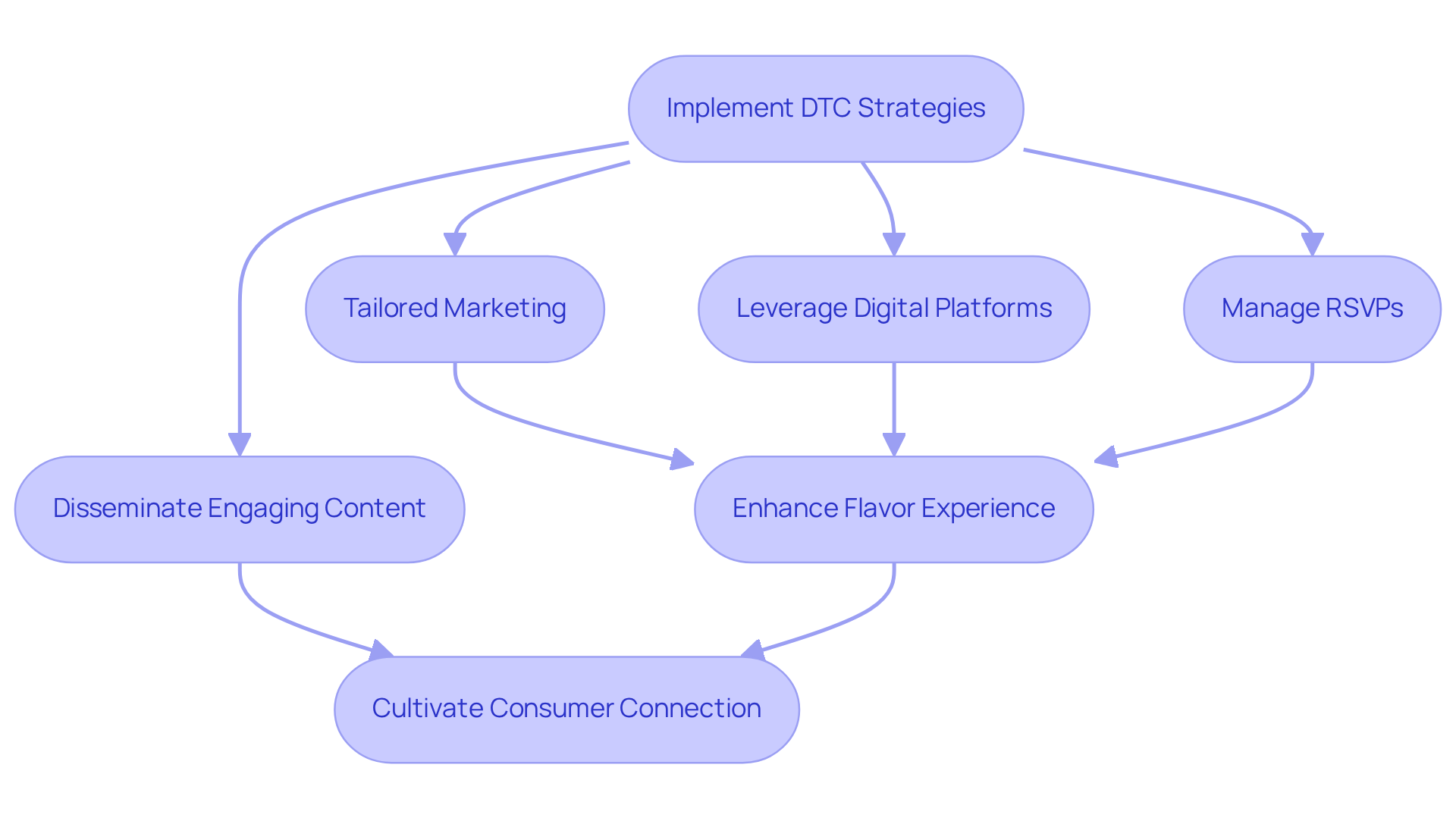
Blind Tasting: Challenge Your Guests' Palates
Arranging a blind tasting is among the fun wine tasting ideas that provide an exhilarating opportunity to engage your guests. By providing each participant with a selection of beverages concealed in bags or coded with numbers, you create an atmosphere of intrigue. Encourage them to articulate the flavors, aromas, and characteristics they perceive. This approach not only sparks vibrant conversations but also offers fun wine tasting ideas that aid individuals in refining their palates and discovering new favorites free from preconceived notions.
To amplify the competitive spirit, consider offering a reward for the participant who accurately identifies the most beverages. Such incentives not only enhance engagement but also foster a deeper appreciation for the nuances of each drink.
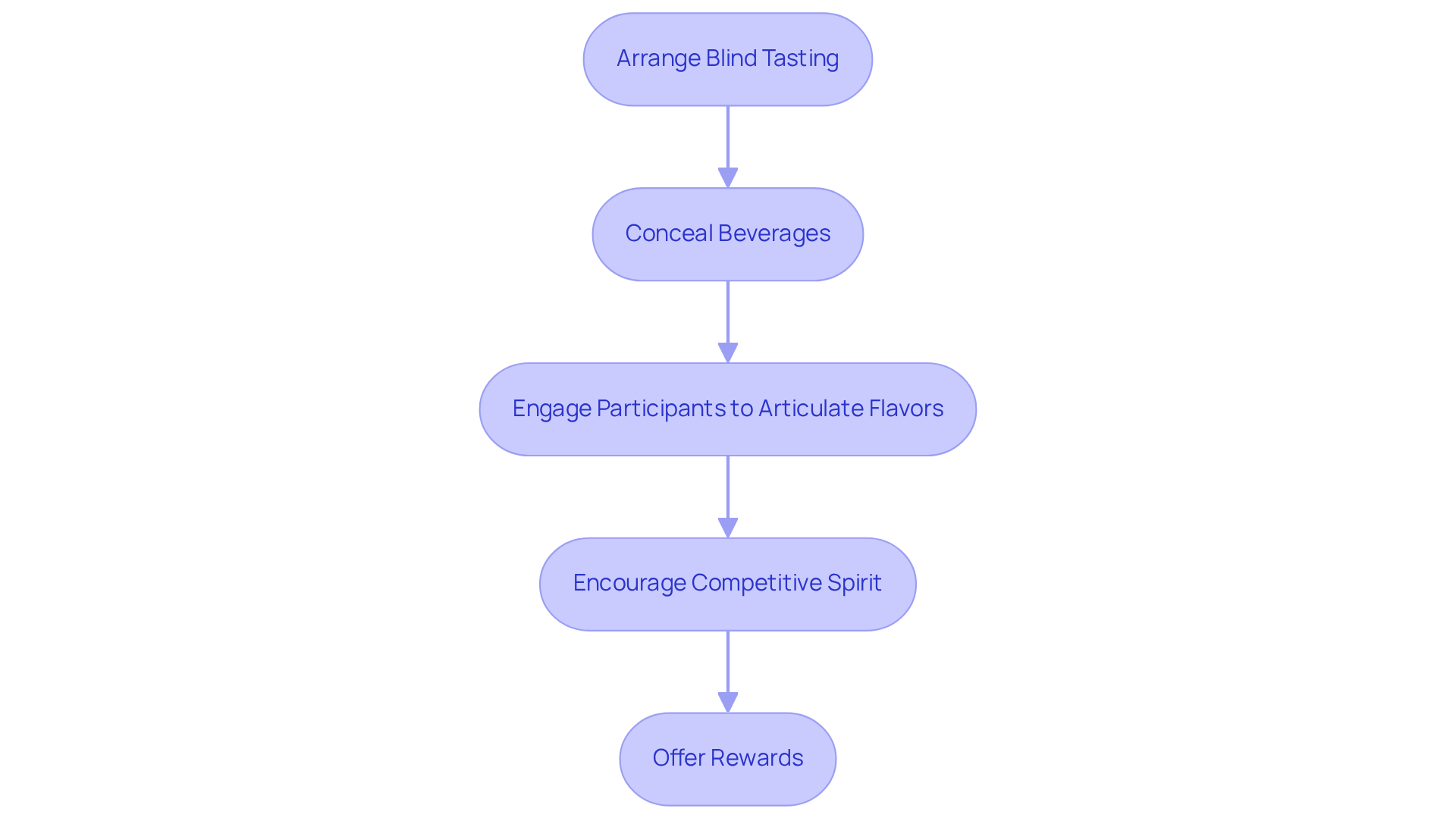
Diverse Glassware: Elevate the Tasting Experience
Utilizing a diverse range of glassware tailored to the specific beverages served is essential for enhancing the overall experience. For instance:
- Tulip-shaped glasses are ideal for aromatic whites.
- Fuller-bodied reds benefit from wider bowls.
This approach not only elevates sensory enjoyment but also educates guests on how the shape of a glass can influence their perception of the beverage. By providing a succinct explanation for each glass selection, you can significantly enrich the tasting experience.
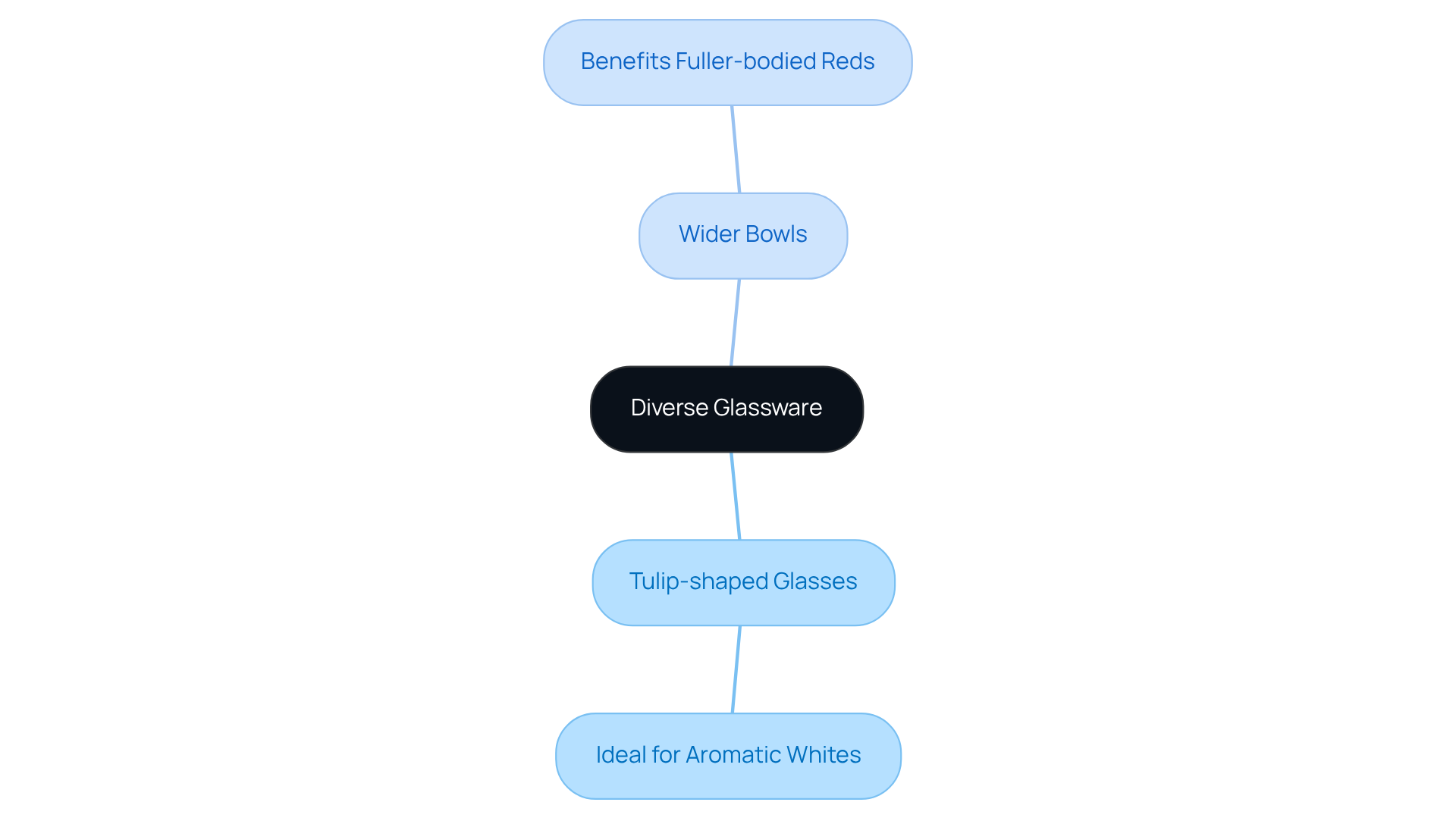
Regional Themes: Explore Wines from Around the World
Organize fun wine tasting ideas that are centered on a specific region, such as:
- Tuscany
- Napa Valley
- Bordeaux
Curate a selection of beverages that exemplify the unique characteristics of that area, and provide attendees with insightful background on the terroir, grape varieties, and vinification techniques. This thematic approach not only educates attendees but also fosters a for the diverse range of beverages available. By showcasing the distinctive features of each region, you create an engaging experience with fun wine tasting ideas that resonates with wine enthusiasts and industry decision-makers alike.
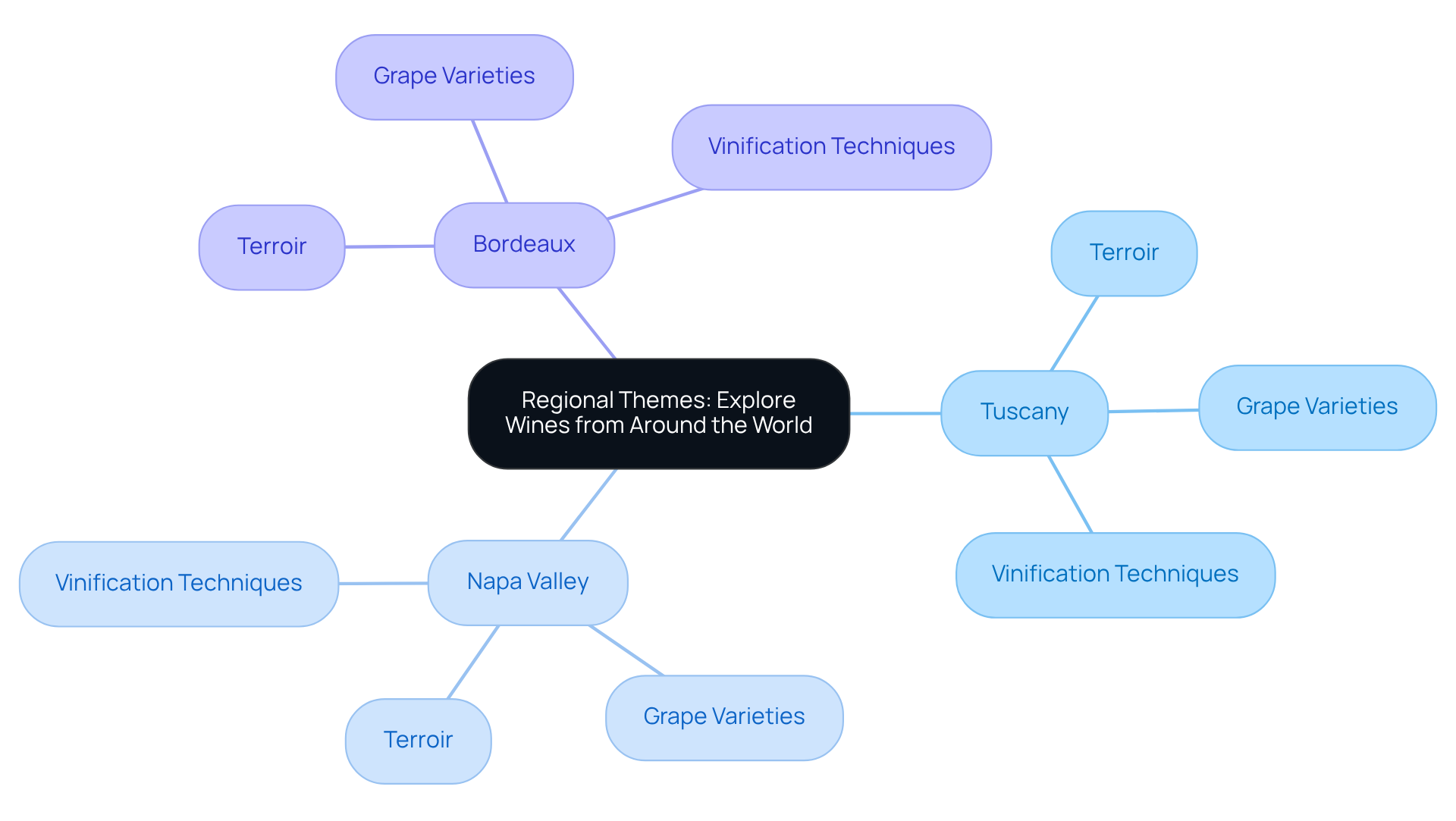
Food Pairing Competition: Engage Guests with Culinary Creativity
Consider organizing a contest featuring fun wine tasting ideas that invites participants to craft their own unique combinations with the wines being sampled. By providing a curated selection of cheeses, charcuterie, fruits, and other accompaniments, you create an environment ripe for fun wine tasting ideas and exploration. Guests will have the opportunity to present their fun wine tasting ideas and articulate their choices, fostering meaningful discussion and innovative thinking.
To further encourage this creative process, contemplate awarding a prize for the most innovative pairing. This not only incentivizes participants but also prompts them to think critically about flavor combinations, enhancing the overall experience.
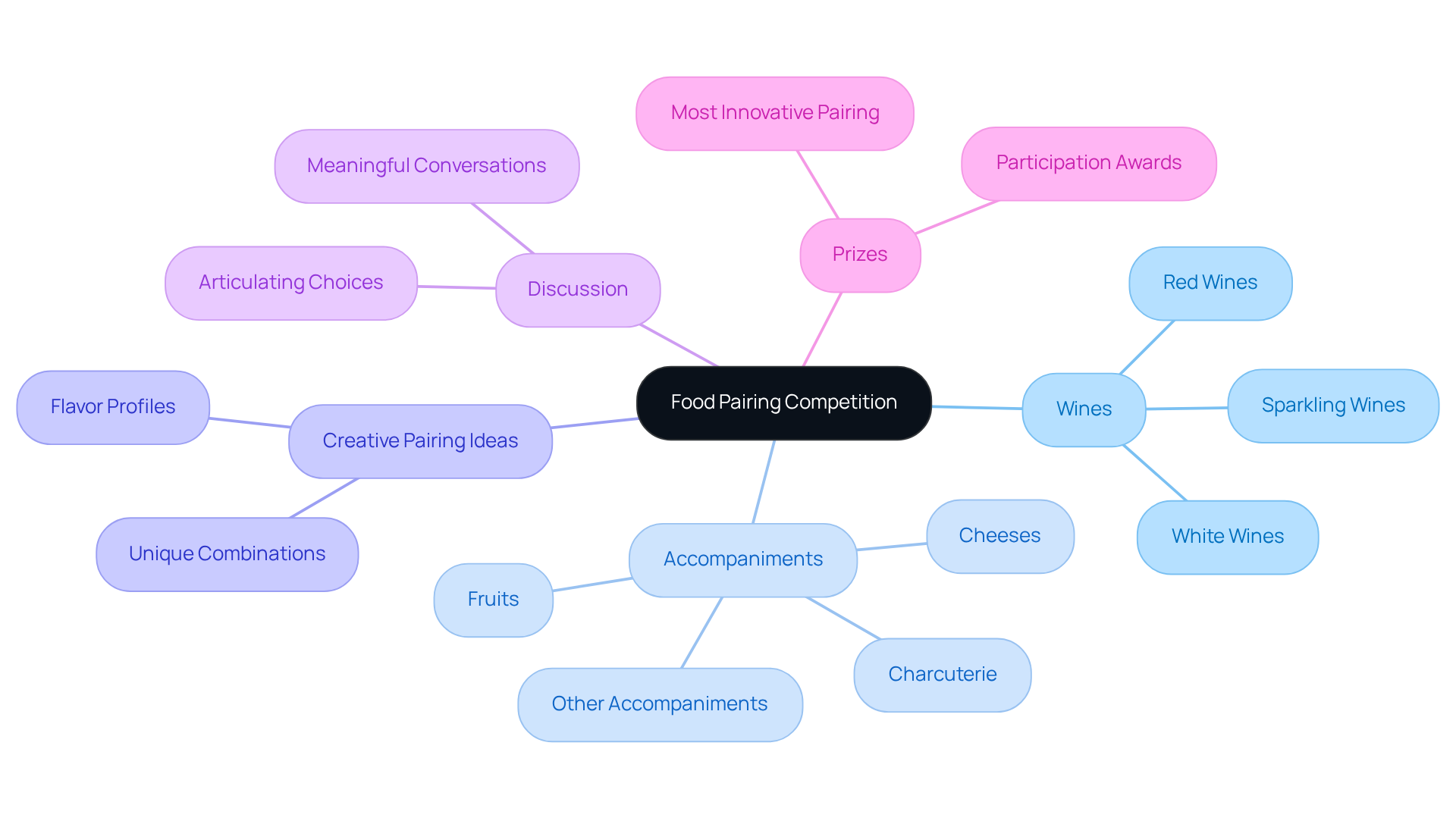
Sommelier Insights: Enhance Your Tasting with Expert Guidance
Engaging a sommelier for your sampling event is a strategic move that can significantly elevate the experience. This expert can provide into each wine variety, encompassing its history, production methods, and ideal food pairings. Such professional guidance not only enriches the wine sampling but also empowers attendees to ask questions and engage in deeper discussions about the selections. The presence of a knowledgeable sommelier fosters an atmosphere of sophistication and learning, making the event more memorable and impactful. By incorporating this level of expertise, you not only enhance the overall quality of the event but also position it as a premier experience in the wine industry.
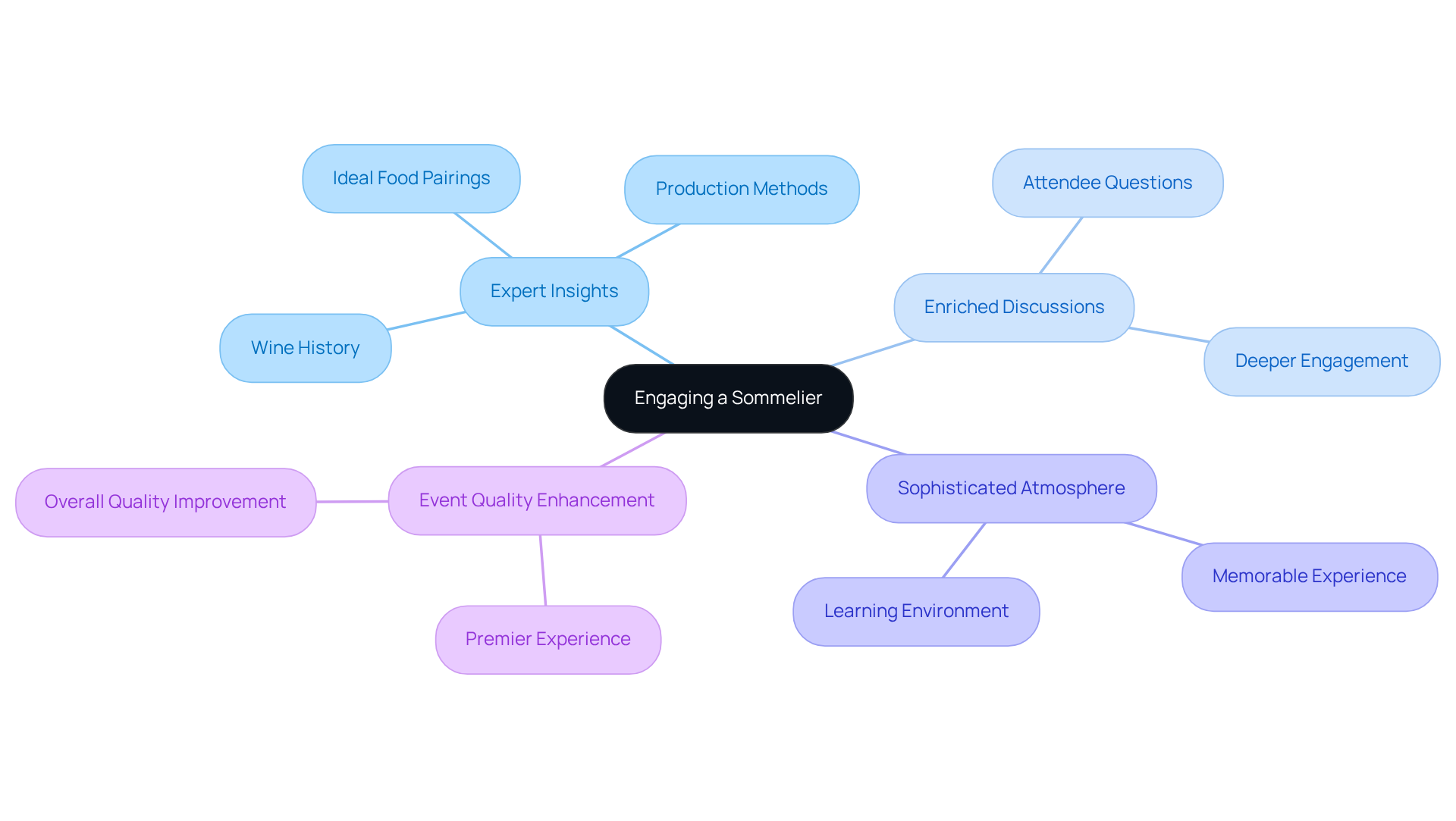
Curated Playlist: Set the Perfect Mood for Tasting
Crafting a carefully curated playlist is essential to elevate the theme of your tasting event. Consider the mood you wish to establish—be it relaxed and casual or elegant and sophisticated. The right music not only enhances the overall experience but also fosters a sense of comfort and engagement among attendees. It is crucial to manage the volume appropriately, allowing conversations to flow seamlessly while still enjoying the ambiance created by the background music.
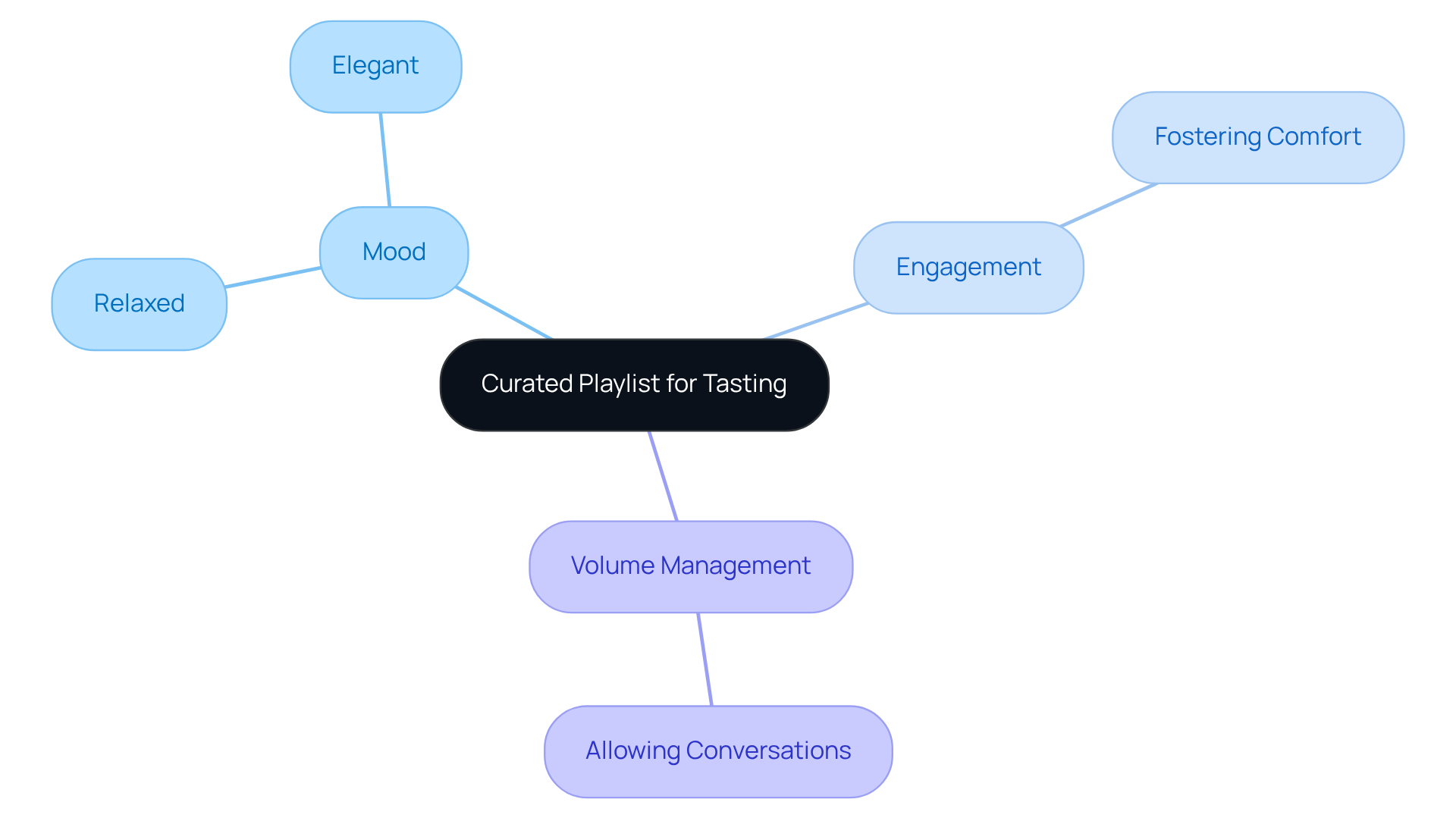
Charcuterie Boards: Perfect Pairings for Wine
Craft a selection of charcuterie boards that showcase a diverse array of meats, cheeses, fruits, and nuts. Each board should be meticulously designed to showcase fun wine tasting ideas that complement specific wines being sampled, allowing visitors to explore various combinations.
By providing insights into why particular pairings work effectively, you can enhance the educational aspect of the fun wine tasting ideas, motivating attendees to explore their own preferences. This approach not only enriches their tasting experience but also positions your offerings as a .
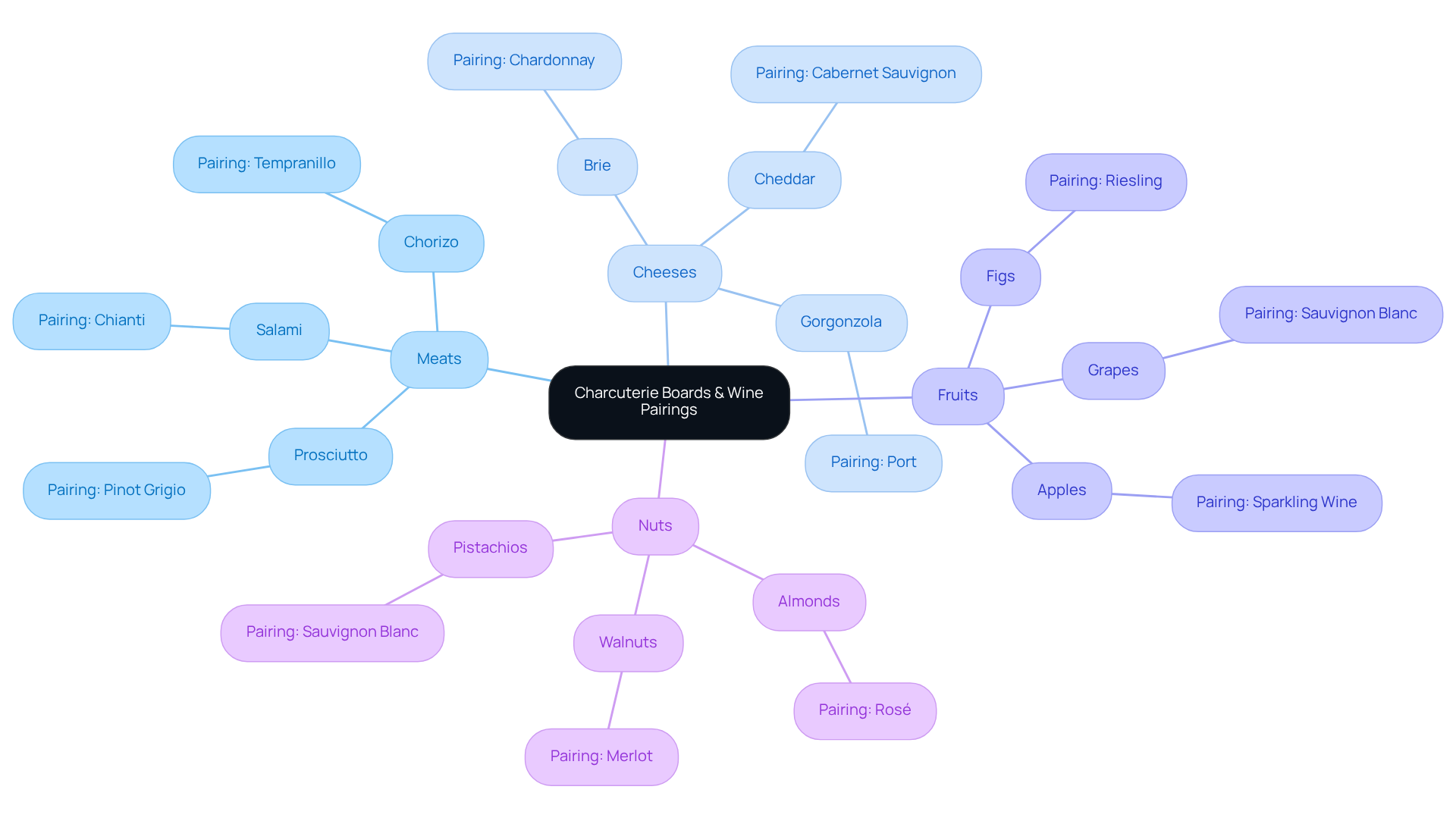
Mystery Bottle: Add Surprise to Your Tasting Event
Incorporating a mystery bottle into your sampling lineup is an exceptional strategy. Conceal this element until the event's conclusion, prompting attendees to speculate about its varietal, region, and vintage based on their flavor notes. This interactive feature not only amplifies the excitement but also encourages visitors to with the beverages they are sampling. By revealing the bottle at the end and discussing its unique characteristics and story, you create an engaging experience that resonates with your audience.
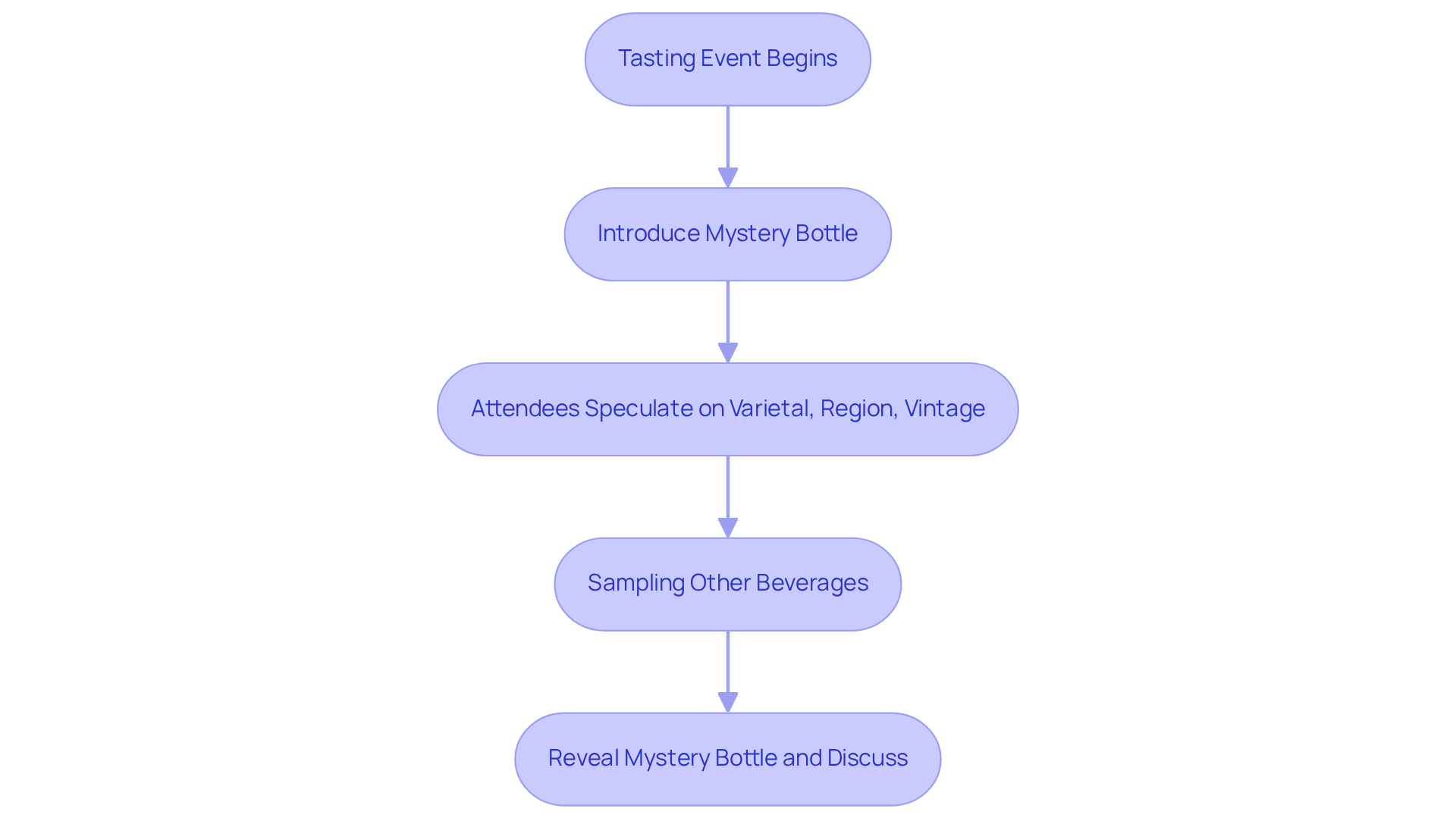
Memorable Takeaways: Gifts to Remember Your Tasting
Consider the impact of offering attendees a small token to remember the tasting event, such as:
- A branded glass
- A bottle of beverage
- A recipe card that highlights the food pairings from the occasion
These thoughtful gestures not only enhance the overall experience but also motivate guests to return to the winery or interact with the brand online. This follow-up serves as a powerful tool for cultivating enduring relationships with consumers, seamlessly aligning with Enocap's and wine club optimization. By integrating these memorable takeaways into your brand narrative, you can significantly drive direct-to-consumer growth and bolster customer loyalty.
Conclusion
Engaging guests during a wine tasting is not merely a social event; it is an opportunity to create a memorable experience. By integrating innovative concepts such as blind tastings, regional themes, and curated playlists, wineries can significantly enhance their events, fostering deeper connections with attendees. This underscores the critical role of creativity in wine tasting, illustrating how meticulous planning and distinctive elements can amplify enjoyment and engagement.
The strategies outlined include:
- The use of diverse glassware to elevate flavor perception
- Organizing food pairing competitions that ignite culinary creativity
- Introducing a mystery bottle to captivate guests
Each of these ideas serves a dual purpose: to entertain and to educate, enabling participants to fully appreciate the complexities of wine tasting. Furthermore, the inclusion of a sommelier enriches the experience with expert insights, while memorable takeaways ensure a lasting impression.
Ultimately, the value of these engaging wine tasting concepts lies in their capacity to foster an inviting atmosphere that promotes exploration and connection. By adopting these innovative approaches, wineries can not only enchant their guests but also cultivate loyalty and stimulate growth in a competitive marketplace. Embracing these creative activities transforms the wine tasting experience into a celebration of flavor, community, and discovery.
Frequently Asked Questions
What is the importance of direct-to-consumer (DTC) strategies in wine tasting?
DTC strategies are critical as they help wineries create personalized interactions with guests, leveraging digital platforms for invitations, managing RSVPs, and sharing engaging content about the beverages. This enhances the tasting experience and builds a deeper connection between the winery and its consumers.
How can wineries benefit from implementing DTC strategies?
Wineries can achieve substantial growth through DTC strategies, transforming casual visitors into loyal customers and enhancing their brand narratives. Some wineries have experienced e-commerce growth of up to 191% as a result.
What is a blind tasting and how can it engage guests?
A blind tasting involves providing participants with beverages concealed in bags or coded with numbers, encouraging them to describe the flavors and aromas they perceive. This creates an engaging atmosphere and helps individuals refine their palates while discovering new favorites.
How can competitive elements be introduced in a blind tasting?
To enhance engagement, wineries can offer rewards to participants who accurately identify the most beverages, fostering a competitive spirit and a deeper appreciation for the drinks.
Why is diverse glassware important in wine tasting?
Using a range of glassware tailored to specific beverages enhances the tasting experience by elevating sensory enjoyment and educating guests on how glass shape influences their perception of the beverage.
What types of glassware are recommended for different beverages?
Tulip-shaped glasses are ideal for aromatic whites, while fuller-bodied reds benefit from wider bowls. Providing explanations for each glass selection can enrich the tasting experience.




